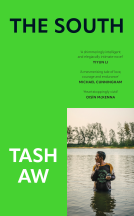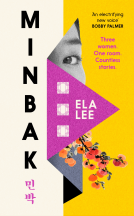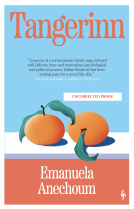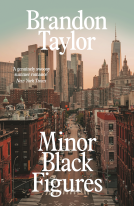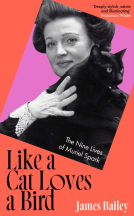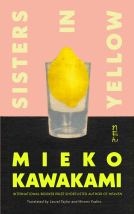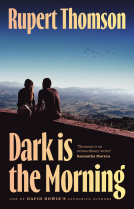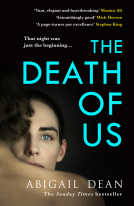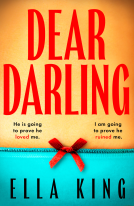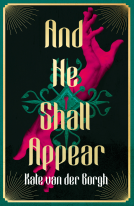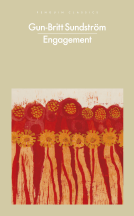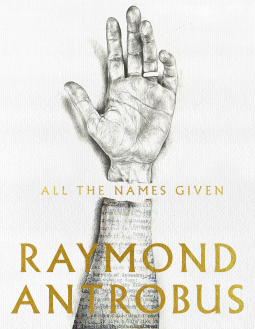
All The Names Given
by Raymond Antrobus
This title was previously available on NetGalley and is now archived.
Send NetGalley books directly to your Kindle or Kindle app
1
To read on a Kindle or Kindle app, please add kindle@netgalley.com as an approved email address to receive files in your Amazon account. Click here for step-by-step instructions.
2
Also find your Kindle email address within your Amazon account, and enter it here.
Pub Date 2 Sep 2021 | Archive Date 2 Sep 2021
Pan Macmillan | Picador
Talking about this book? Use #AlltheNamesGiven #NetGalley. More hashtag tips!
Description
From the Sunday Times Young Writer of the Year 2019
Shortlisted for the T. S. Eliot Prize 2021
'[Raymond Antrobus] has built another beautiful paper house which you can spend a very long and deeply satisfying time inside.' Mark Haddon
'Moving deftly between tenderness and violence, hope and grief, praise and lament, this is a deeply evocative collection that will linger in the reader’s mind.' Guardian
Raymond Antrobus’s astonishing debut collection, The Perseverance, won both Rathbone Folio Prize and the Ted Hughes Award, amongst many other accolades; the poet’s much anticipated second collection, All The Names Given, continues his essential investigation into language, miscommunication, place, and memory.
Throughout, All The Names Given is punctuated with [Caption Poems] partially inspired by Deaf sound artist Christine Sun Kim, which attempt to fill in the silences and transitions between the poems, as well as moments inside and outside of them. Direct, open, formally sophisticated, All The Names Given breaks new ground both in form and content: the result is a timely, humane and tender book from one of the most important young poets of his generation.
Available Editions
| EDITION | Other Format |
| ISBN | 9781529059502 |
| PRICE | £10.99 (GBP) |
| PAGES | 96 |
Average rating from 10 members
Featured Reviews
Thank you so much to NetGalley and Pan Macmillan / Picador for the e-ARC in exchange for an honest review.
Having attended an online event where I heard Raymond perform poetry from this collection I knew I had to read it. Now, I'm not a poetry person, I'm one of those readers that will just say 'I don't get it' or 'it's not for me', and while I still think both of those statements are true (poetry is seriously hit or miss for me) this collection is poignant and beautiful, moving and touching, and it is brimming with passion.
While I didn't 'get' them all, I didn't expect to (my failing entirely), I CAN appreciate their beauty in a way I rarely connect with poetry. There is something about the writing here that speaks to me, even if I don't understand how.
Even if you don't normally read poetry I urge you to give this collection a try, you might be surprised by how much there is to enjoy here, and just how much you connect with it.
5 moving stars
An amazing book of poetry. Loved the way he picks his words and gives us something to think about even after we have finished reading them. He's truly a great poet.
Anyone worrying that Raymond Antrobus had mellowed after his debut book of poetry, “The Perseverance”, would do well to consider this extract from “Language Signs”, the third poem in his second collecton “”All The Names Given”,
“All the men who raised me are dead, those bastards. I’m one self-pitying prick of a son.”
Yes, these are angry poems, but they are often tinged with tenderness and hope.
The book begins with poems exploring people through the ages who have shared the surname Antrobus, from slavers to painters, and their legacy, Achingly personal at all times, there are snapshots of Antrobus’ turbulent upbringing exploring themes of race, cultural identity and his own deafness, though the latter not to the same extent as in the previous book. It is always there in the subtext of his poems, though, as he relates awkward moments of miscommunication. The poems take us through Raymond’s life from difficult adolescence right up to his marriage. Many of the poems appear almost prose-like in structure, so much so that it has the feel of an autobiography at times and can be a tad overwhelming, but maybe that’s deliberate. The poetry of Raymond Antrobus is brutally direct and requires, even demands rereading.
Having been blown away by “The Perseverance”, this new work doesn’t disappoint but it impresses in a different way. Antrobus experiments with poetic forms in order to tell his stories, something which is never less than thrilling. While I feel that this collection is maybe not quite as immediate as “The Perseverance”, it is still a raging, beautiful volume from one of the most important poets of his generation. Reading the poetry of Raymond Antrobus is a visceral experience that will leave you shaken.
"All the Names Given" is the new collection from poet Raymond Antrobus, and is an exploration of identity, race, culture, and love, among other things. The poet explores colonialism and racial identity, often within a short, tight framework, lending the poems an intensity that longer pieces may well have lost.
A beautifully written collection, and one I look forward to rereading.
Thank you to NetGalley and to the publisher, who granted me a free ARC copy of this book in exchange for an honest review.
My first book by Raymond Antrobus, and I am delighted I have read it: many thanks to Picador via NetGalley for the opportunity to read and review it. I shall buy a paper copy in due course as this merits rereading and on paper it will make even more sense. I am still mulling it over.
The collection of poems (free rhyme, full of quotes, very narrative and pictorial) wanted to be read in one go, as an actual story, from cover to cover. I totally engaged with the writing, which is syncopated, varied, funny, poignant. I loved the use of quotations by other writers - it clearly set the idea of lineage also in the writing, the confrontations, the explanations... Antrobus explores family, identity, living here and now, past stories and histories, the arts... (I loved his poem-review of an actual performance at the ROH of Jonny Steinberg´s A Man of Good Hope by the South African Isango Ensemble. So many questions dealt with so much acuity!!) These are timely explorations of universals and present issues all of them seem to throw a new light brought about by a very personal perspective which I found deeply engaging. Never pretentious but intelligent, accessible and allusive - demanding rereading in the best possible way. Recommended!
Readers who liked this book also liked:
Agatha Christie
General Fiction (Adult), Historical Fiction, Mystery & Thrillers
